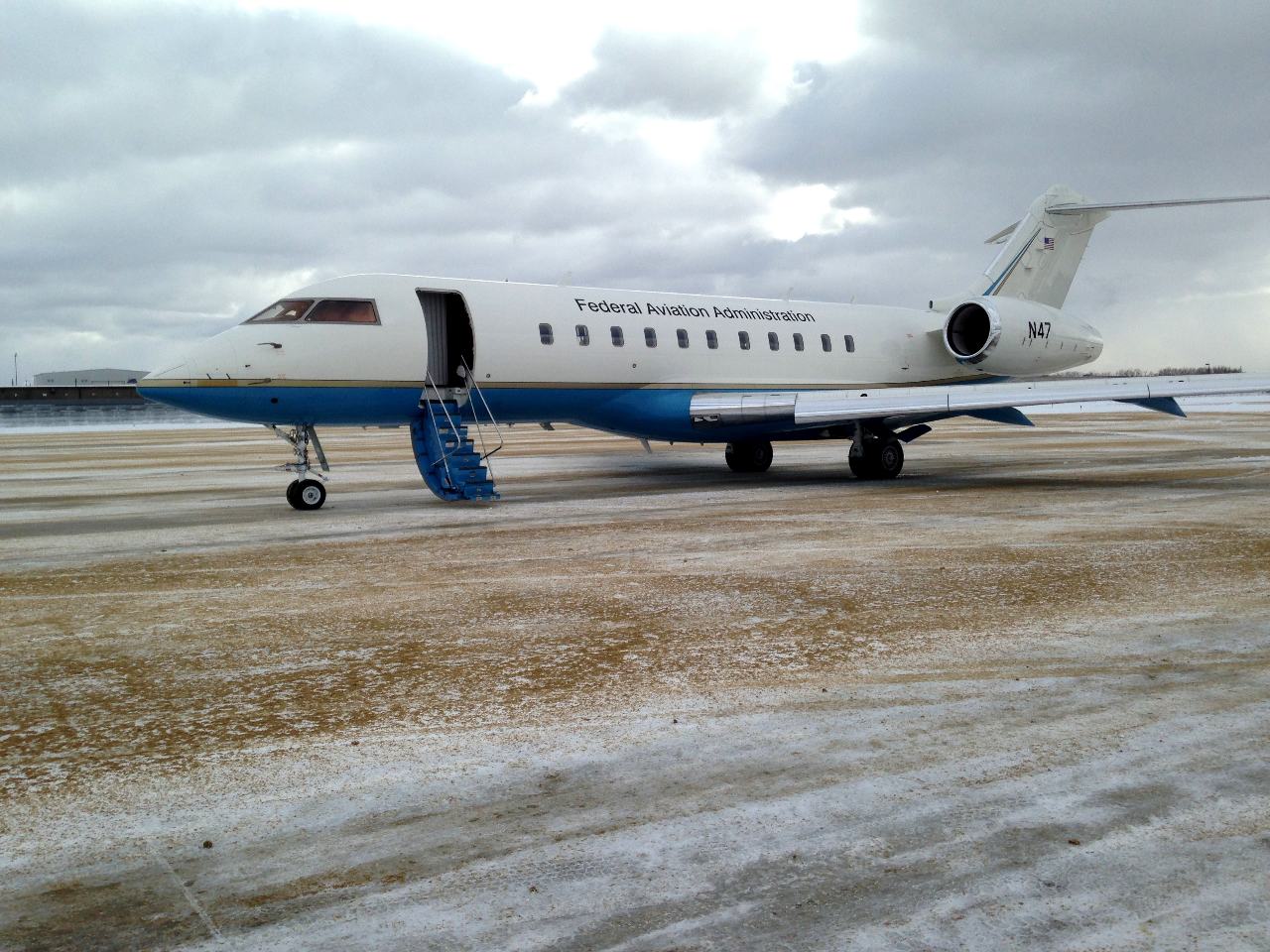Aireon and the FAA have announced a successful flight test of space-based Automatic Dependent Surveillance-Broadcast (ADS-B) technology, collecting ADS-B data to be used as part of a larger validation effort exploring the new system’s capability from low-earth orbit. The flight took place on 30th March, utilizing the FAA’s specially equipped “flying laboratory” Bombardier jet with three Aireon payloads available to receive data.
A total of 2,462 ADS-B messages were received and decoded providing comparable data to that of terrestrial ADS-B stations. The flight test was precisely located and timed within the Washington and New York Flight Information Regions (FIRs) to help provide validation of the capabilities of the Aireon system.
The flight test involved trials of 125W top- and bottom-mounted antennas on the FAA test bed. The aircraft is specially retrofitted with highly calibrated antennas, flight-data test equipment and recorders. The tests helped begin the evaluation and verification of the performance of the Aireon system, particularly in high-interference and high-density environments.
Aireon’s space-based ADS-B global surveillance and aircraft tracking technology is largely a combination of FAA NextGen advancements, and the Iridium NEXT satellite constellation, which hosts the Aireon ADS-B receivers.
Aireon’s space-based ADS-B system is scheduled to be operational in 2018, shortly after completion of the Iridium NEXT satellite constellation. The service will provide Air Navigation Service Providers (ANSPs) with global air traffic surveillance and airlines with real-time flight tracking.
The first ten Iridium NEXT satellites carrying the Aireon hosted-payloads were launched into low-Earth-orbit from Vandenberg Air Force Base on a SpaceX Falcon 9 rocket, on 14th January. Seven additional SpaceX launches are scheduled to take place over the next 12 to 15 months, including the second launch now targeted for June of 2017. In total, the operational constellation will consist of 66 satellites, with an additional nine serving as on-orbit spares.

